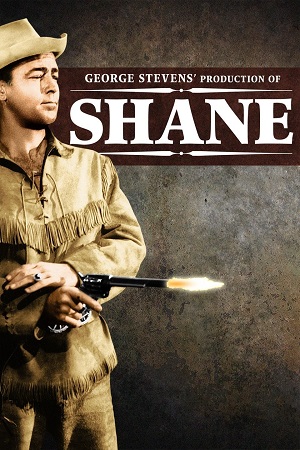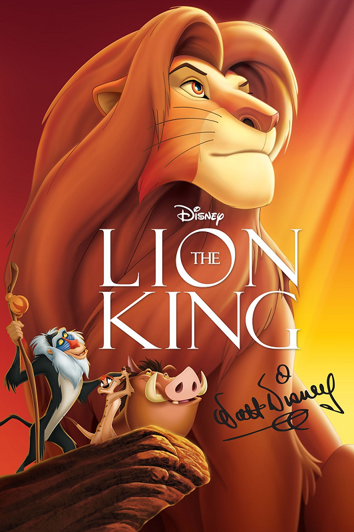Shane (1953)

Shane (1953) is a classic American Western film directed by George Stevens and based on the 1949 novel of the same name by Jack Schaefer. The movie is set in the late 19th century and follows the story of a mysterious gunslinger named Shane, who becomes involved in a conflict between a group of homesteaders and a ruthless cattle baron.
The film is renowned for its stunning cinematography, compelling storyline, and memorable performances by its cast. Alan Ladd delivers a powerful portrayal of the titular character, Shane, a lone rider who finds himself drawn into the struggle of the homesteaders against the oppressive forces of the cattle baron, Rufus Ryker, played by Emile Meyer.
One of the most striking aspects of Shane is its exploration of the moral complexities inherent in the Western genre. The character of Shane embodies the archetypal Western hero, possessing exceptional skill with a gun and a strong sense of justice. However, he also grapples with his own internal conflicts and the consequences of resorting to violence.
The film's themes of honor, loyalty, and the struggle for justice resonate with audiences to this day. Shane's relationship with the homesteader family, particularly young Joey Starrett, played by Brandon deWilde, adds emotional depth to the narrative and underscores the human cost of the conflict.
Furthermore, the film's visual storytelling is particularly noteworthy. George Stevens' masterful direction captures the vast and unforgiving landscape of the American frontier, utilizing wide shots and breathtaking scenery to immerse viewers in the setting. The contrast between the serene beauty of the land and the violent clashes that occur upon it serves as a powerful backdrop for the film's narrative.
Shane also features an iconic musical score by composer Victor Young, which complements the on-screen drama and adds to the emotional impact of key scenes. The film's use of music to underscore pivotal moments further contributes to its enduring legacy as a cinematic masterpiece.
In addition to its artistic merits, Shane holds historical significance within the Western genre. It represents a transitional period in the portrayal of heroes in Western films, moving away from simplistic depictions of good versus evil and delving into more nuanced characterizations. This evolution paved the way for future Westerns to explore complex themes and moral dilemmas.
Shane's impact extends beyond its initial release, as it continues to influence filmmakers and storytellers across generations. Its enduring popularity has led to numerous accolades and honors, solidifying its place in cinematic history.
In conclusion, Shane (1953) stands as a timeless classic that exemplifies the best qualities of the Western genre. Its compelling characters, thought-provoking themes, and visual artistry continue to captivate audiences and inspire admiration from critics and filmmakers alike. As a testament to its enduring legacy, Shane remains an essential viewing experience for cinephiles and a shining example of the power of storytelling through film.
Related News
Top 10 Best Animated Movies of All Time
Animation is a medium that can bring to life any story, character, or world imaginable. It can appeal to audiences of all ages, cultures, and backgrounds, with its variety of styles, genres, and themes. Animation can also convey emotions, messages, and ideas that are hard to express in live-action.
Top 10 Best Science Fiction Movies of All Time
Science fiction is a genre that explores the imaginative and often speculative possibilities of science, technology, and the future. It can range from realistic scenarios to fantastical worlds, from hard science to space opera, from dystopian nightmares to utopian visions. Science fiction movies hav
Star Wars (1977)
Star Wars, released in 1977, is a groundbreaking science fiction film that has left an indelible mark on popular culture. Directed by George Lucas, the film was a game-changer in the world of cinema, revolutionizing special effects and storytelling. The movie's impact has been felt far and wide,
Inside Out (2015)
Inside Out is a 2015 animated film produced by Pixar Animation Studios and released by Walt Disney Pictures. Directed by Pete Docter, the film takes viewers on a journey through the mind of an 11-year-old girl named Riley, exploring the emotions that guide her actions and experiences. Inside Out pro




Comment Record:
Reply to comments: